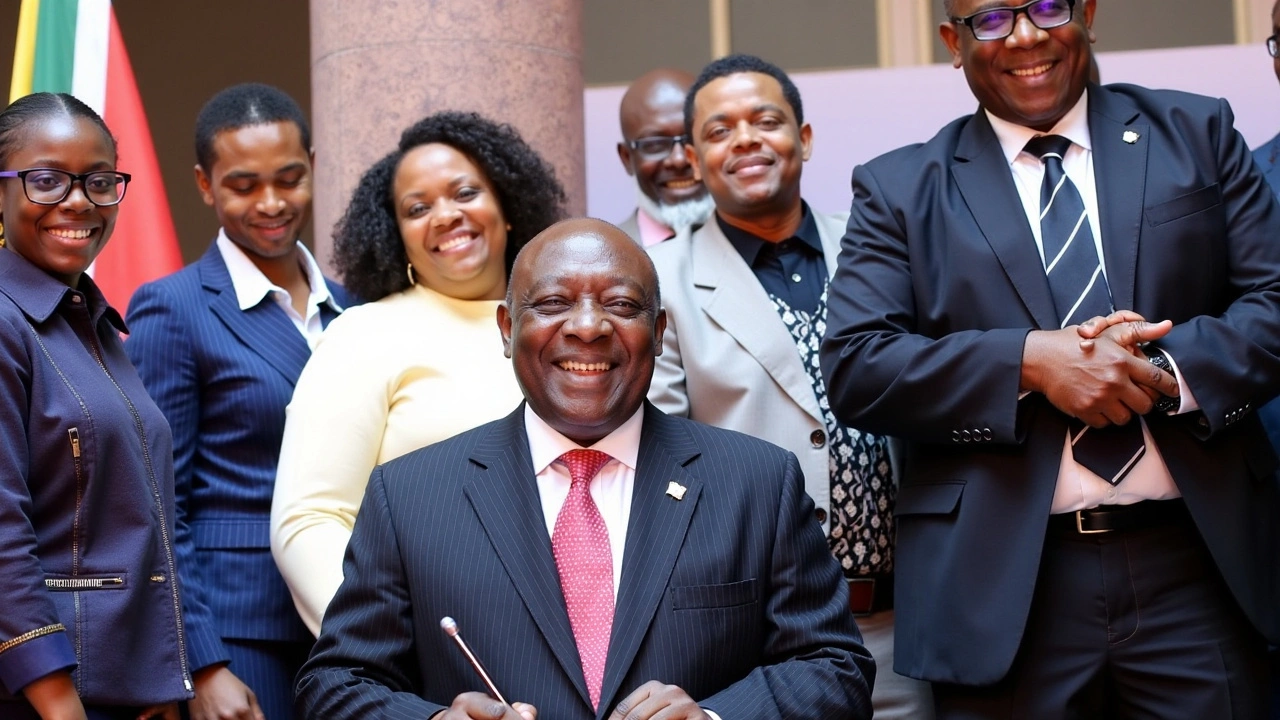Ramaphosa Signs Comprehensive Bela Bill, but Halts Two Key Clauses Amid Controversy

Introduction to the Bela Bill
In a pivotal move, South African President Cyril Ramaphosa has officially enacted the Basic Education Laws Amendment Bill, commonly referred to as the Bela Bill. This significant legislation marks a transformative step in the country's education policy. Signed into law after a robust legislative process, the Bela Bill aims to address critical issues within South Africa's educational framework. However, the journey hasn't been smooth, as it involved extensive debate and opposition, particularly concerning two clauses that have now been temporarily paused for three months.
Background and Context
The Bela Bill has been on the government's agenda for some time, intended to overhaul several aspects of the educational system and bring it in line with modern needs and standards. South Africa's education system has long faced numerous challenges, including disparities in quality and resource allocation between urban and rural schools. The bill's comprehensive approach aims to tackle these issues through a series of reforms, targeting areas such as school governance, curriculum development, and teacher training. With education being a cornerstone of any nation's development, the significance of this legislation cannot be overstated.
Contentious Clauses and Opposition
While the bill as a whole has been welcomed by many educational experts and policymakers, two specific clauses stirred significant controversy, drawing criticism from various quarters. The first contentious clause pertains to the centralization of school admissions processes. Critics argue that this centralization could strip schools of their autonomy and lead to bureaucratic bottlenecks. The second controversial clause involves changes to the language policy, which would impact the medium of instruction in schools. Opponents, particularly from linguistic and cultural groups, fear this could undermine the preservation of indigenous languages and cultural identities.
Decision to Pause and Implications
President Ramaphosa’s decision to hit the pause button on these two clauses reflects a nuanced understanding of the divide they have caused. By delaying their implementation for three months, the government aims to open the door for further dialogue and consultation. This interim period will allow stakeholders, including educators, parents, cultural groups, and policymakers, to voice their concerns and potentially find a middle ground. The temporary pause is not a sign of weakness but rather a strategic move to ensure that the reforms are inclusive and considerate of all viewpoints.
The Path Forward
The coming months will be crucial for the future of the Bela Bill. The government has indicated its willingness to engage with all concerned parties, hoping to reach a consensus that balances the need for efficient education governance with respect for local autonomy and cultural diversity. This consultative approach is likely to involve a series of town hall meetings, expert panels, and public forums where diverse opinions can be expressed and considered. The outcome of these discussions will likely shape the final implementation of the paused clauses and the overall success of the Bela Bill.
Stakeholder Reactions
The reactions from various stakeholders to the signing of the Bela Bill and the subsequent pause on the contentious clauses have been mixed. Educational bodies and unions have generally expressed support for the bill's overarching objectives but remain cautious about the implementation details. Cultural and linguistic groups, while appreciative of the pause, have emphasized the need for genuine consultations and tangible adjustments to the clauses in question. Meanwhile, political analysts view the decision as a savvy move by President Ramaphosa, balancing the need for progress with the political necessity of consensus-building.
Conclusion
The signing of the Bela Bill into law by President Cyril Ramaphosa marks a significant milestone in South Africa's educational reform journey. However, the decision to pause the implementation of two controversial clauses for further review and consultation underscores the complex and multifaceted nature of policy-making in a diverse society. As the government moves forward with the consultation process, it will be essential to strike a balance that addresses the concerns of all stakeholders while ensuring that the primary goal of enhancing the education system is achieved. The next three months will be a test of the government's ability to navigate this delicate terrain and build a more equitable and effective educational framework for the future.